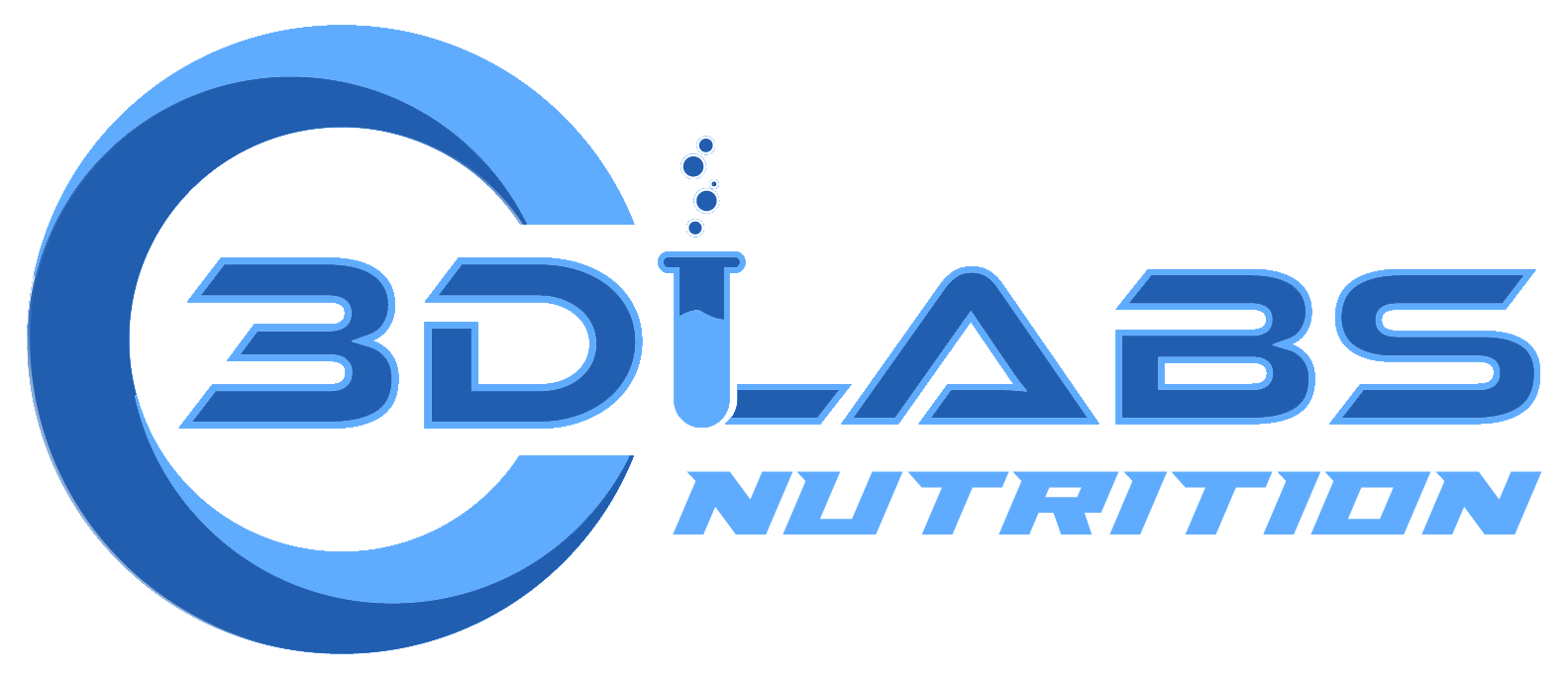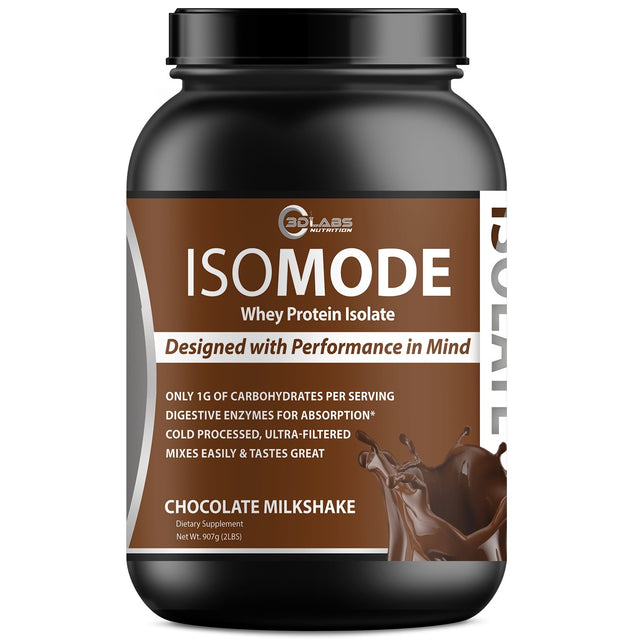The Secret to Sustaining Weight Loss: What Really Works
The Secret to Sustaining Weight Loss: What Really Works
Ever wondered why most horror stories start with something vanishing mysteriously and then making an unexpected comeback? Well, for many of us, that spooky story is all about lost weight that comes back to haunt us! Did you know that approximately 80% of people who lose weight regain at least some of it, and often more, within two years? It's like the ghost of Christmas cookies past, refusing to leave.
Welcome to the not-so-mysterious world of Sustainable Weight Management. Unlike the fad diets that flash like a comet across our social feeds, promising quick fixes but fading just as fast, sustainable weight management is all about playing the long game. It's not about shedding pounds overnight with extreme restrictions that make you miserable, it's about establishing a lifestyle that keeps you at a healthy weight without invoking the spirits of hunger and deprivation.
Our mission with this blog post is clear: to arm you with science-backed strategies not just for losing weight, but for keeping it off. No magic potions or secret spells, just solid, proven techniques that are as much about enjoying your journey as they are about reaching your destination. So, buckle up! We're about to embark on a ride that goes beyond the typical "eat less, move more" mantra, diving deep into what really makes weight management sustainable.
Understanding Weight Management
The Science of Weight Loss
At its core, weight loss revolves around a simple scientific principle: calorie deficit. This means consuming fewer calories than you burn. Sounds simple, right? But here's where it gets interesting. Your body's metabolism and how it converts what you eat and drink into energy, is a complex biochemical process influenced by your age, sex, muscle mass, and even genetics.
Calorie intake is the total amount of calories you consume through eating and drinking. To manage weight, you need to balance these calories with the amount of energy your body uses, which we refer to as energy expenditure. This expenditure is a combination of:
- Basal Metabolic Rate (BMR): The energy used for basic functions when your body is at rest.
- Physical Activity: The energy you expend through everything from jogging to fidgeting.
- Thermic Effect of Food (TEF): The energy used to digest, absorb, and metabolize food.
Understanding these elements can help you create a balanced approach to losing weight, one that respects your body's needs and maintains your overall health.
Common Myths and Misconceptions
When it comes to weight loss, myths and quick fixes are often more appealing than the truth. Here are a few myths that need busting:
Myth: Crash diets are an effective way to lose weight permanently.
Truth: While crash diets can offer quick results, they often lead to muscle loss, slowed metabolism, and a host of other issues. Plus, they are not sustainable. Most people who follow these diets regain the weight once they resume a normal eating pattern.
Myth: You need to drastically cut calories to lose weight.
Truth: Severe calorie restriction can backfire, leading to a slower metabolism as your body tries to conserve energy. It's healthier and more effective to reduce calories moderately while improving the nutritional quality of the foods you eat.
Myth: Fat makes you fat.
Truth: Dietary fats are essential for your body, providing energy and supporting cell growth. Healthy fats, like those found in avocados, nuts, and fish, can actually help you feel fuller longer and reduce the tendency to binge on unhealthy snacks.
By understanding the science behind weight loss and dispelling these myths, you can approach weight management with the right knowledge and tools to succeed in the long run. This sets the stage for a more informed and sustainable weight management strategy, steering clear of the allure of quick fixes and focusing on lifelong health and wellness.
Strategies for Sustainable Weight Loss
Setting Realistic Goals
Embarking on a weight loss journey without a map is like trying to hit a bullseye in the dark. To avoid this, setting realistic and measurable goals is crucial. Realistic goals are achievable and tailored to your personal health, lifestyle, and abilities. For instance, aiming to lose 1-2 pounds per week is considered safe and achievable. These goals should not only focus on weight loss but also on other wellness markers such as improved energy levels or better sleep patterns. Measure your progress with tools like food diaries, fitness trackers, or regular health check-ups to keep motivated and on track.
Nutritional Adjustments for Long-Term Success
- Balanced Diets vs. Restrictive Diets: The tale of restrictive diets is as old as time, and spoiler alert, it rarely ends in "happily ever after." Instead, a balanced diet that includes a variety of foods from all food groups is more sustainable and beneficial. This ensures you get all the necessary nutrients without feeling deprived, which can help maintain weight loss over the long term.
- Importance of Macronutrient Balance: Carbohydrates, proteins, and fats are the three musketeers of your diet and each plays a vital role in your body. Carbohydrates are the body's main energy source, proteins are crucial for repairing tissues and muscles, and fats support cell growth and hormone production. Balancing these macronutrients can help manage hunger, improve metabolic health, and prevent weight regain.
Behavioral Changes and Habit Formation
- Role of Habits in Weight Management: Habits are the invisible architecture of daily life. When it comes to weight management, forming healthy habits is more effective than relying on sheer willpower. Consistent routines lead to sustained weight loss and health improvements over time.
- Tips for Forming Healthy Eating and Exercise Habits:
By focusing on these strategies, you create a robust framework for sustainable weight loss. It's not just about losing weight but building a lifestyle that nurtures and sustains it, transforming the ephemeral dreams of weight loss into enduring realities of health and well-being.
Tools and Techniques to Enhance Weight Management
Exercise as a Pillar of Weight Loss
Exercise isn't just about burning calories; it's a cornerstone of good health and a vital component of effective weight management. Different types of exercise offer unique benefits for those looking to lose weight and keep it off:
- Cardiovascular Exercise (Cardio): This includes activities like walking, running, cycling, and swimming. Cardio helps burn calories and improve heart health. It's particularly effective at burning visceral fat, which surrounds your organs and can lead to various health issues.
- Strength Training: Building muscle through strength training exercises such as weight lifting can significantly boost your basal metabolic rate (BMR), meaning you burn more calories even at rest. More muscle mass leads to greater energy expenditure daily.
- High-Intensity Interval Training (HIIT): HIIT involves short bursts of intense exercise alternated with low-intensity recovery periods. It's particularly effective for weight loss because it burns a lot of calories in a short time and can elevate your metabolism for hours after exercise.
Incorporating Mindfulness and Mindful Eating
Mindfulness is a powerful tool in the quest for sustainable weight management, particularly when it comes to eating habits:
Preventing Overeating: Mindfulness helps you become more aware of your body's hunger and fullness signals. Eating mindfully involves paying full attention to the experience of eating and drinking, both inside and outside the body. It helps you recognize your non-hunger triggers for eating and brings more enjoyment to the act of eating.
Techniques for Mindful Eating:
- Eat Slowly and Without Distraction: Sit down to eat and eliminate distractions like TV or smartphones. Focus on chewing your food thoroughly and savoring each bite.
- Listen to Your Body: Learn to recognize when you are no longer hungry. Pause in the middle of a meal or snack to ask yourself how the food tastes, and how full you are.
- Connect with Your Food: Consider the nutritional quality and the effort that went into preparing your meal. This can help foster appreciation and lead to healthier choices.
The Role of Sleep and Stress Management
Sleep and stress have profound effects on your metabolic processes, including those that affect weight management:
- Sleep and Weight Loss: Lack of sleep can disrupt appetite hormones and lead to increased hunger and appetite. It has been shown that people who don't get enough sleep tend to weigh more than those who do. Aim for 7-9 hours of quality sleep per night to support weight loss and overall health.
- Stress Management: Chronic stress can trigger cortisol production which leads to cravings for unhealthy food and weight gain, especially around the abdomen. Techniques such as deep breathing, yoga, and meditation can help manage stress effectively.
By incorporating these tools and techniques into your lifestyle, you can enhance your ability to manage weight effectively. Each element, from regular physical activity to mindful eating and adequate sleep, plays a critical role in achieving and maintaining a healthy weight.
Overcoming Challenges and Plateaus
Adjusting Strategies Over Time
Weight loss is not a linear journey; it often involves plateaus where progress seems to stall. Overcoming these plateaus is crucial for sustained weight management:
- Change Up Your Exercise Routine: If your body becomes accustomed to a certain workout, it may become less effective over time. Introduce new activities, increase the intensity or duration of your workouts, or mix different types of exercise such as cardio, strength training, and flexibility workouts to keep your body challenged.
- Reevaluate Your Caloric Needs: As you lose weight, your body requires fewer calories. Recalculate your caloric needs based on your current weight to ensure you're still in a caloric deficit if weight loss is your goal.
- Incorporate More Whole Foods: If weight loss stalls, look at your diet and ensure it's rich in whole foods. These foods are more satisfying, nutrient-dense, and less calorie-dense, which can help break through a weight loss plateau.
Dealing with Setbacks
Setbacks are a normal part of any weight management journey. Here's how to stay motivated and get back on track:
- Keep a Positive Mindset: Understand that setbacks are temporary and a normal part of the process. Maintaining a positive outlook helps you deal with challenges more effectively.
- Reflect and Reassess: Use setbacks as an opportunity to reflect on what might be causing them. Is it a particular time of day, certain foods, emotions, or stress? Identifying these triggers can help you develop strategies to overcome them.
- Set Small, Manageable Goals: After a setback, setting small goals can help you regain confidence and momentum. For example, aim to be active for at least 30 minutes a day or focus on including vegetables in every meal.
- Seek Support: Don't hesitate to seek support from friends, family, or a professional like a dietitian or a counselor. Support networks can provide encouragement and accountability, which are vital for long-term success.
Navigating through plateaus and setbacks with strategic adjustments and a positive attitude can transform these challenges into opportunities for growth and learning. This approach not only promotes sustained weight management but also contributes to a healthier, more balanced lifestyle.
Tools for Tracking Progress
Using Technology and Apps
In the digital age, technology offers a variety of tools that can significantly enhance your weight management journey. Here's how technology can help:
- Food Tracking Apps: Apps like MyFitnessPal, Lose It!, and Chronometer allow you to log every meal and snack, giving you insights into your calorie intake, nutritional balance, and eating patterns. These apps often feature large food databases, making it easier to track exactly what you're eating.
- Fitness Trackers and Smartwatches: Devices like Fitbit, Apple Watch, or Garmin provide detailed insights into your physical activity, sleep patterns, heart rate, and more. They can help you understand how active you are and offer personalized tips to increase your activity levels.
- Weight Tracking Apps: Apps specifically designed for weight tracking, such as Happy Scale or WeightFit, can smooth out your weight trends and predict future changes, helping you see progress and stay motivated even through plateaus.
The Importance of Community and Support
Having a supportive community can significantly influence the success of your weight management efforts:
- Social Support: Engaging with a community, whether online or in person, provides emotional encouragement and practical advice. For instance, fitness forums, local fitness groups, or social media groups can offer support, accountability, and a platform to share experiences.
- Professional Guidance: Sometimes, it helps to have professional support from dietitians, personal trainers, or health coaches who can provide tailored advice and adjustments to your plan based on your progress.
- Fitness Classes and Group Activities: Participating in group activities, whether they are workout classes, group hikes, or sports teams, can increase motivation and make physical activity more enjoyable.
- Family and Friends: Involving family and friends in your wellness journey can help sustain your efforts. They can join you in healthy eating, exercise, and even provide a listening ear when challenges arise.
Tracking your progress with the help of technology and cultivating a supportive community are crucial aspects of successful weight management. These tools not only help you stay on track but also make the journey towards a healthier lifestyle more enjoyable and less daunting. Together, they provide a robust framework for anyone looking to achieve and maintain their weight loss goals.
As You Can See
Embarking on a journey toward sustainable weight management is both empowering and transformative. Throughout this post, we've explored a range of strategies that lay the foundation for losing weight and, more importantly, keeping it off. We've delved into setting realistic goals to keep you grounded, making nutritional adjustments that foster long-term habits, and embracing a variety of exercises to keep your body's metabolism active and engaged.
We've also highlighted the critical roles of mindfulness, sleep, and stress management in achieving weight management goals. Moreover, we discussed the importance of leveraging technology, from apps to trackers, that aid in monitoring your progress and keeping you accountable. Lastly, the undeniable support of community and professional guidance cannot be overstated, as they provide the much-needed encouragement and knowledge to navigate your weight management path.
Onward We Go
Now, equipped with these insights and tools, you're more prepared than ever to transform your approach to weight management. Remember, the goal is not just to lose weight but to nurture a lifestyle that allows you to maintain these changes effortlessly and healthily. Sustainable weight management is not a sprint; it's a marathon that requires persistence, patience, and dedication.
We encourage you to take the first step today towards a healthier, more balanced life. Start small, perhaps by integrating more whole foods into your diet, setting a weekly exercise goal, or simply tracking your daily water intake. Every small change is a building block towards your overall success.
We'd love to hear about your journey and any insights you may have. Feel free to share your experiences, challenges, or questions in the comments below or on our social media platforms. Your story could inspire others and help build a community of like-minded individuals committed to living healthier lives.
Let's embark on this journey together, embracing the challenges and celebrating every victory, no matter how small. Your path to sustainable weight management starts now.
Always Remember...
We would love to hear your thoughts on this, or any other article we write, so please, drop us your comments, ideas, input, and suggestions in the comments below.
And, by all means, if you think anyone in your world might like something we write, use the share buttons below to help us spread the word!
Until next time...PROGRESS, not PERFECTION!
Don't forget, always consult your physician before making any changes to your diet or exercise regimen.
Live a 3D Life...Decisions Determine Destinations!








0 Comments
There are no comments for this article. Be the first one to leave a message!